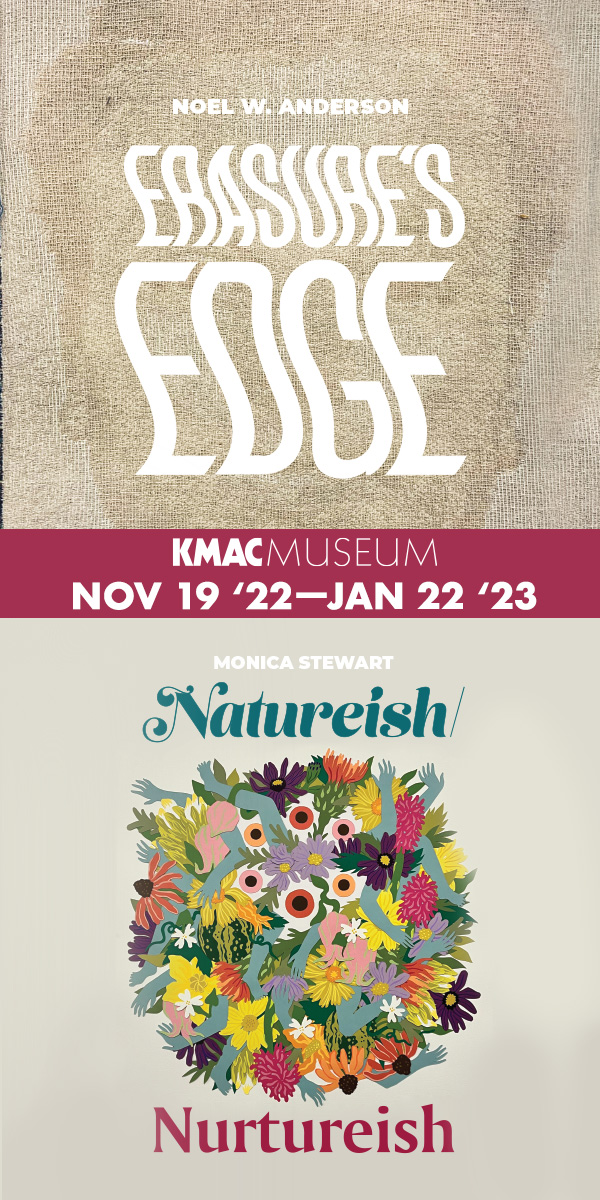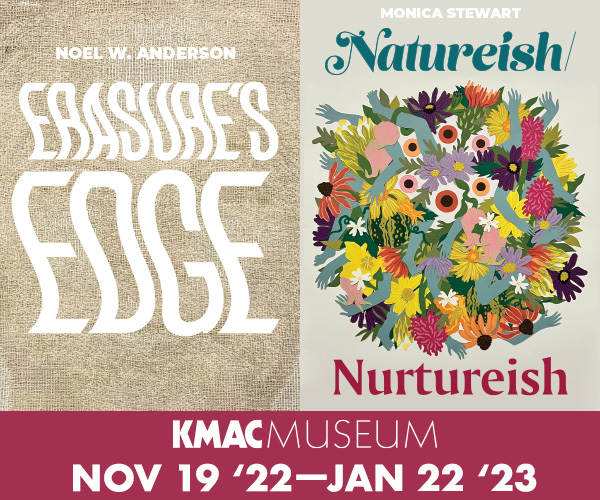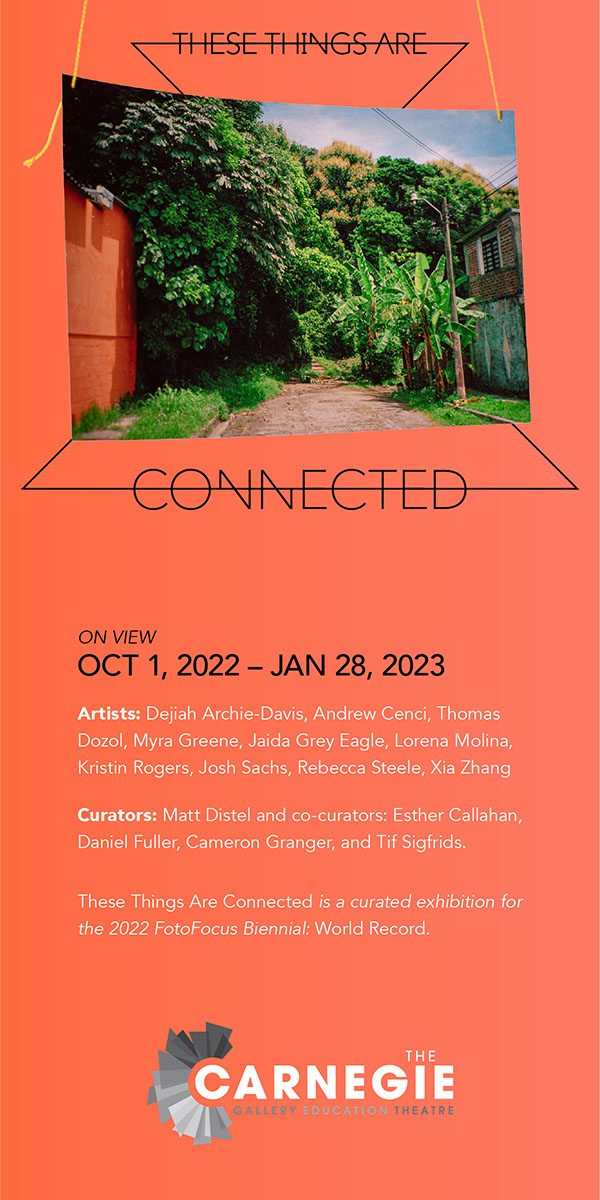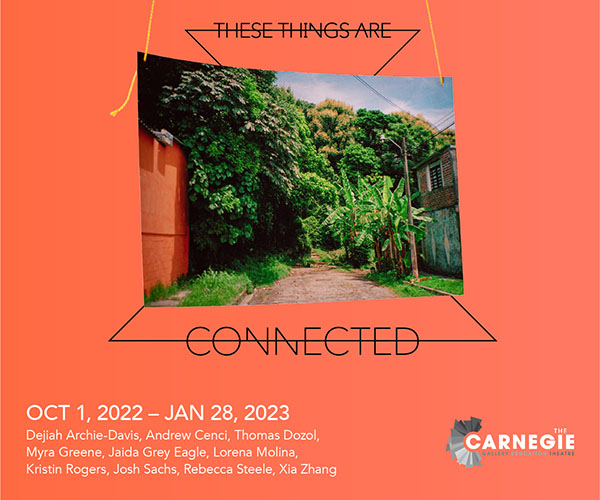This is our fourth installment of the Louis Zoellar Bickett Series produced by UnderMain in collaboration with AEQAI and so many others. For the first three installments visit: By The Hand of a Conceptualist, A New Broom Sweeps Clean, and Collapsing Art and Life.Â
The series was inspired not only by Louis’ life and work, but also by the encouragement of Daniel Brown of AEQAI, a Cincinnati-based, on-line journal that has been publishing Louis’ poetry and photographic essays for many years. I would like to thank Daniel for that suggestion and Neil Kesterson of Dynamix Productions for the comfortable and accommodating recording sessions. Thanks also to Guy Mendes for the many photographs he has shared and permitted UnderMain to publish.
The original plan was to conduct one interview; but, Louis’ body of work is so expansive that we are now on our fifth. The podcasts and the recorded poetry readings published on UnderMain will hopefully add to our understanding of the humble brilliance behind the man, particularly as Lexington prepares to launch a citywide retrospective of his work.
Stuart Horodner of The University of Kentucky Art Museum, and Phillip March Jones of Institute 193 are leading this endeavor. The museum will kick things off on August 27th, 2016 with the exhibition titled Saving Myself. Other venues include: Institute 193, The Lexington Art League, 21c Museum Hotel, and The UK Albert B. Chandler Hospital.
On five nearly consecutive Tuesdays this summer, Louis and I met at Kesterson’s North Ashland Avenue studio in Lexington, Kentucky and discussed many things: his family, his influences, his artistic projects and practice, and a sizable body of poetry to be bound in a manuscript he has been pulling together for over 40 years. We also talked, at his invitation, about his recent diagnosis of ALS.
Candor present and courage aside, it is with just plain matter-of-factness that Louis engages us. The majority of the podcast titled A Simple Gift (inspired by a poem Louis shared) centers on The Archive; with commentary on 10,000 Selfies, Back Bar, and What I Read, demonstrating the modular way in which Louis has constructed The Archive.
These same projects were integrated by Julien Robson into the 2015 Zephyr Gallery exhibition titled: Project 7: Louis Zoellar Bickett - the third and most recent attempt to show or re-create The Archive. The actual archive resides at 820 West High Street in Lexington, Kentucky. The first two exhibitions of similar nature were at Institute 193 in 2009 and at Land of Tomorrow in 2011 with Philip March Jones and Joey Yates curating respectively.
This fall The UK Art Museum will show sections or modules of The Archive with accompanying curator remarks that align Louis’ work with other significant artists who utilize ‘accumulation strategies’ and merge art and life. But, through the course of my interviews, I began to wonder what Louis is saving and why? Is it just himself or something more? Is his body of work a harbinger, an avant la lettre of something we do not yet know, something we cannot yet see?
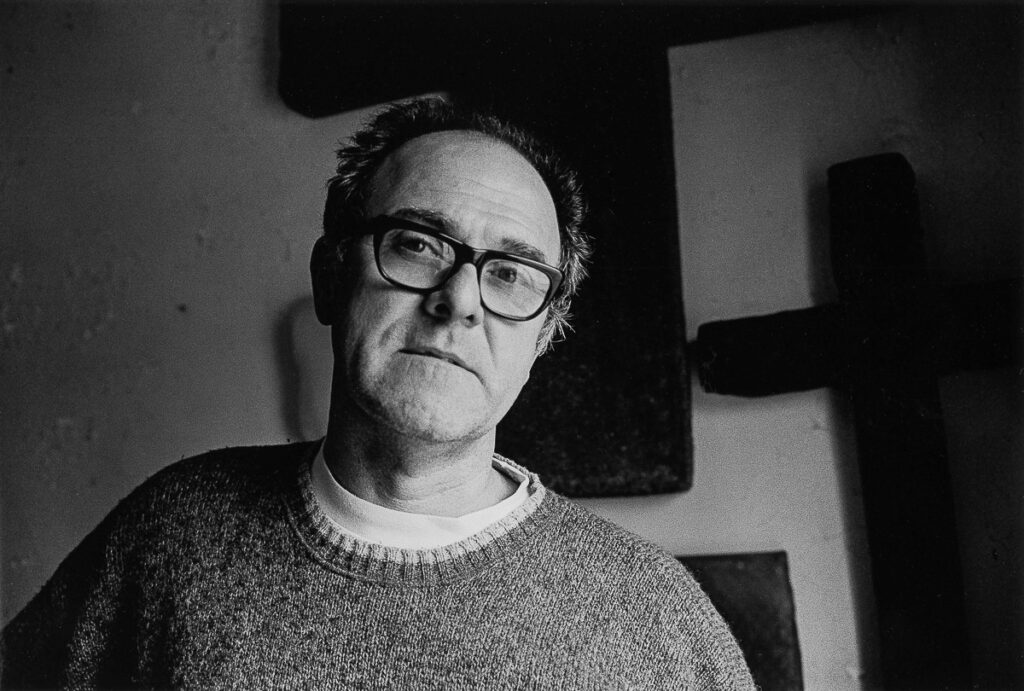
Louis’ confirms that his work is done in the construction of identity and is autobiographical in nature. As auto-portraiture the work reveals many things about the artist – sometimes in very literal fashion. With Back Bar the artist bottles his own urine, acknowledging that it is, in fact, a collection of his own DNA. In What I Read, he documents what texts he reads whether it be The Holy Bible, James Joyce’s Ulysses, or Madame Bovary.
Louis even dutifully snaps a Selfie on a day when he might ‘look like hell’ while working on 10,000 Selfies – and firmly states that ‘the Selfie is the most important photographic development since the Polaroid.
Through The Archive and all of its related modules, which incorporate photography, sculpture, mud, postcards, and neckties, we know Louis. We know how he engages the world, how he has embraced history, family, politics, sexuality, humor, racism, and religion since the early 1970s.
During our interview, Louis recalled the precise moment when The Archive began in 1972, while watching his mother sort through a large box of photographs that included selections from every era of photography from 1839 to the 70s.
Louis’ recollections anchor our understanding and the influence of photography in his life. At an early age he was conscious of the power of the medium to capture a precise moment in time, a particular place. Whether contemplating the Daguerreotype or the Polaroid, Louis sensed long ago that it was not only the subject in the photograph that mattered; his own photographs taken in Paris, New York, or Kentucky had as much to do with him being there – in that precise moment in time – as they did with anything he was photographing.
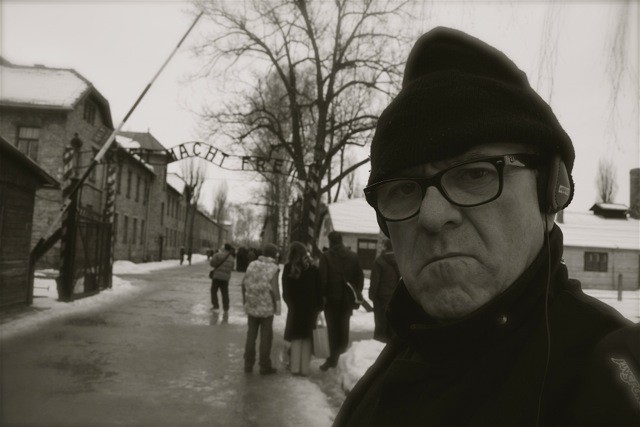
Perhaps it is fitting or even ironic then that during the artists’ life the Selfie would emerge. The photographer turning the camera on himself, he documents his presence in the here and now as we all do. But, for Louis this is not a narcissistic endeavor; he willingly admits it is more of a dutiful chore – and from my vantage point, as though he were bound to the completion of a much larger portrait.
Although Louis never suggests such, I wonder if someday we will look back and realize that through all these self-reflections, we have in fact done very little. We snap, smile, find the right tilt of the head or placement of hair and lips, but we cannot discern if it is ‘autumn or a dying July.’
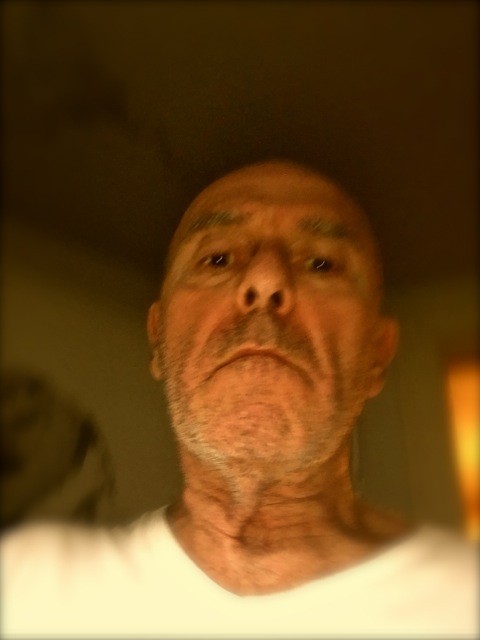
Louis Zoellar Bickett II, through his life’s work, has captured key events and happenings at the turn of the 21st century. He has done so through the lens of his own life, saving everything in a very responsible manner so that knowledge does not fade. He has done so with diligence, persistence and dedication, but never with presumption or arrogance.
What he has now amassed through The Archive is large, it is multi-disciplinary and multi-faceted. It is ugly and beautiful and sometimes funny, cumbersome and very well organized. Yet, from all, IÂ could discern that in Louis’ mind, what he has given us amounts to nothing more than a simple gift.
Â
Our fifth interview with Louis Zoellar Bickett:
A SIMPLE GIFT
Coffee outside,
the sun slowly builds strength.
It is early,
There is little traffic, little sound.
Sitting under a large but leafy,
adolescent tree
a comfortable breeze
wraps loosely around me.
It could be autumn
instead of the end of a dying July,
that until today, baked everything
thoroughly done.
A bearded man, behind me,
sitting on an ancient,
rusting glider
gently moves in time
with the music he is making,
plucking on a mandolin.
–July 30, 2010-June 27, 2016
Louis Bickett reads A Simple Gift:
Topmost photograph is by Guy Mendes. Louis in The Archive, 2001

